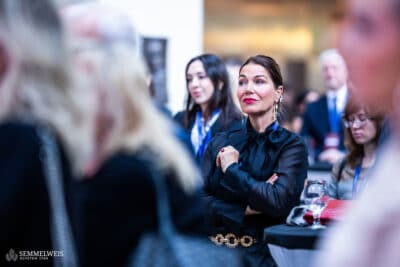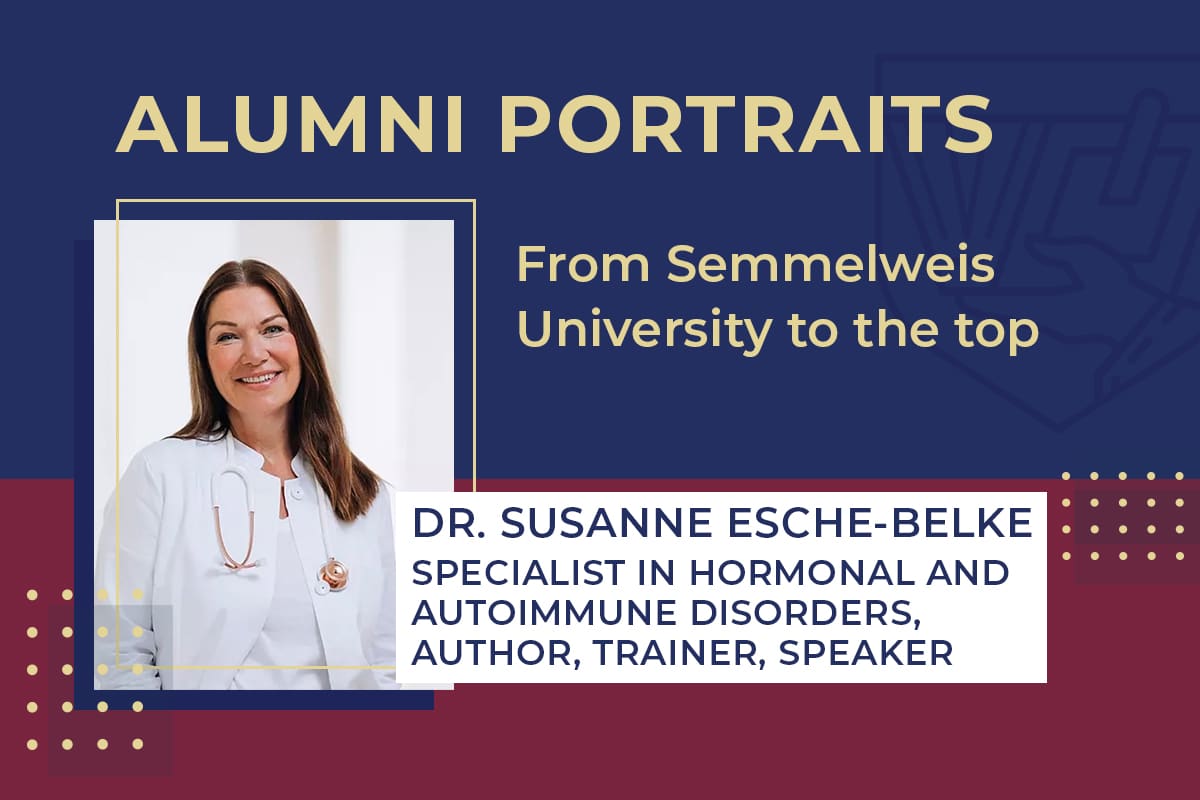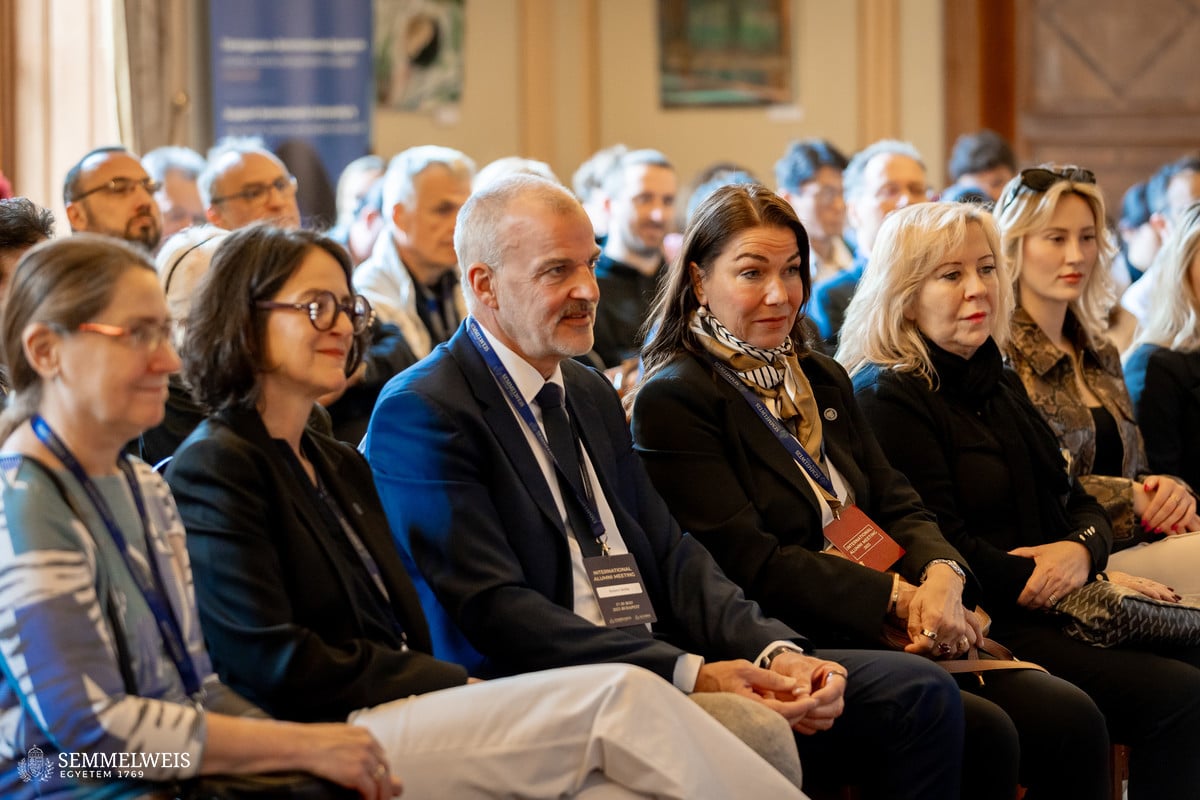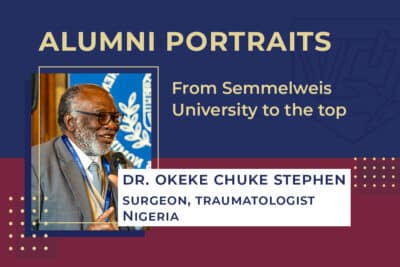Your work is quite diverse. What are the most important stages in your career?
At the beginning of my clinical career, I was particularly interested in emergency medicine, so I worked in the anesthesia and intensive care unit of a large hospital in Hamburg. This was followed by several years in surgery, combined with my earning a doctoral degree in medicine at the University Medical Center Hamburg-Eppendorf. After the birth of my three children, I switched to outpatient care and engaged in further training in areas such as preventive and stress medicine, holistic immunotherapy, microbiome therapy, nutritional and metabolic medicine, naturopathy, and hormonal interactions between internal medical diseases. During my time as a senior physician at an integrative clinic, I was able to strengthen the area of women’s health. In 2020, I founded the first online integrative medical practice with a focus on hormonal and autoimmune disorders. Since 2023 I have been working in my private practice and have also been active as an author, trainer, and speaker.
What do you consider the mission of your work? What would you like to achieve as a healthcare worker?
 My main goal is to combine evidence-based medicine with the findings of emerging sciences and with ancient knowledge.
My main goal is to combine evidence-based medicine with the findings of emerging sciences and with ancient knowledge.
Giving hormones a firm place in medical history, diagnostics, and therapy is a major concern. Hormones do not act in isolation and require interdisciplinary cooperation, but unfortunately, hormone testing is still underrepresented in many disciplines. My vision for the future is a new discipline that further examines and specifically treats these issues.
The needs, concerns, and questions of my patients are the driving force and inspiration for my work. I see my role in creating a safe space where patients feel secure, as well as in working together to develop the best possible solutions with expertise and empathy.
Where did the idea of working in integrative medicine come from?
Despite all the advances in modern medicine, I often felt that I was just managing chronic diseases rather than treating their root causes. These perspectives have permanently broadened my view of medicine and continue to enrich my work even after almost three decades.
The rapid increase in diseases of civilization is a challenge for medicine and healthcare systems to think ahead: more individually and holistically, with a greater focus on treating root causes.
What motivated you to work in hormonal health with a focus on women?
In my work, I increasingly encountered well-educated women in midlife who suddenly found themselves deeply exhausted and were quickly labeled as suffering from “burnout.” However, more detailed diagnosis often revealed a pattern of metabolic disorders, depleted nutrient levels, and hormonal imbalances. For several years, I treated patients with notable thyroid abnormalities – I repeatedly recognized the interaction of metabolic disorders, epigenetic factors, nutrient deficiency, stress, and dietary habits.
Is there something regarding women’s health that is often overlooked in your opinion?
Biological, hormonal, and immunological differences mean that women are more frequently affected by autoimmune diseases, for example. Symptoms, such as those of a heart attack, often manifest themselves differently than in male patients, which can lead to fatal misdiagnoses.
The foundations for healthy aging are laid particularly in middle age. I think that in the future there will be more discussions about the effects that go beyond pure “sexual functions,” also in terms of age-related prevention.
Unfortunately, outdated and unsafe hormone therapies have given hormones a very bad image. There is still a lot of education needed here.
In your work, you stand up against outdated beliefs and discrimination in healthcare institutions. What would you highlight that needs reform and attention?
Of course, my personal experiences during my specialist training in German hospitals, as a mother of three small children, shaped my attitude and areas of interest.
Many studies, drug trials, and laboratory reference values are based primarily on data from male subjects; gender-specific characteristics often receive insufficient attention in diagnostics and therapy.
In addition, there are social and cultural factors, mental load, as well as lifestyle and environmental stresses that have a significant impact on female hormone systems. In order to improve care, these gender-specific characteristics must consistently be taken into account in research, diagnostics, and therapy.
Our network of more than 20 experts – doctors, scientists, journalists, entrepreneurs, and activists – is campaigning at the political level under the initiative #WirSind9Millionen (in English: #WeAreNineMillion, referring to the fact that more than 9 million women in Germany are between 40 and 55 years old) for greater promotion of women’s health and for the need to pay more attention to middle age.
 You also deal with stress management in your work. What is your take on work-life balance and the stress associated with being a doctor?
You also deal with stress management in your work. What is your take on work-life balance and the stress associated with being a doctor?
It has always been a big challenge to live up to my professional obligations with various moves abroad and my three children. Taking time out regularly to relax and be more patient and kinder to myself helps immensely. Travel, painting, yoga, cold water swimming, hiking, spending time with friends and family, and of course the joy I get from my work are my sources of strength. The MBSR training (mindfulness-based stress reduction in a clinical context) has also been really helpful, not only in my work but also in terms of my personal development.
You have written several very successful books throughout the years. What motivated you to start writing?
The needs of my patients and their positive feedback prompted me to summarize the studies I had written over the past few years. Of course, I wouldn’t have thought that my first book, Our Hormones, Our Health, would go on a world tour five years ago and be published in 20 countries. Incidentally, I was particularly pleased with the Hungarian edition.
I have just completed work on a comprehensive online hormone course. In the fall, I will continue my series of talks held at different companies, inspired by the British menopause project. The aim is to educate employees about health and create the best possible working conditions.
In what ways did your time at Semmelweis University shape you?
I look back on my studies at Semmelweis University with great joy and gratitude. The experience of being so warmly welcomed in a foreign country, of being able to study and form meaningful, enduring friendships has had a lasting impact on me.
In addition to their excellent knowledge, the professors and staff also imparted important values. Scientific thinking, respect, community spirit, mutual support, and being part of a great community are privileges that also require a high level of personal commitment. Thirty years later, the two children of mine who also studied at Semmelweis have very similar views on this.
You recently attended Semmelweis’s International Alumni Meeting in Budapest. What were your impressions of the event?
The entire meeting was an absolute highlight. We received an extremely warm welcome. It was wonderful to meet former fellow students and feel the strong bond that unites us, even though a number of us hadn’t met for many years. A fantastic program was organized for us: group excursions, boat trips on the Danube, a wonderful gala dinner. I will definitely come back next time.
Hanna Szekeres, Directorate of International Relations and Alumni Affairs
Translation: Dr. Balázs Csizmadia
Photos by Bálint Barta, Boglárka Zellei – Semmelweis University; Dr. Susanne Esche-Belke




